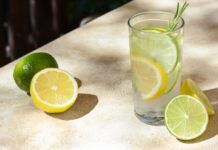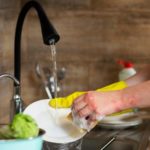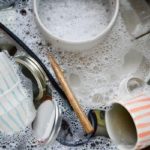In order to ensure cleanliness and safety, it is important to maintain clean tableware. However, many households often make mistakes when washing dishes, resulting in difficult-to-clean utensils that can become breeding grounds for bacteria. Let’s take a closer look at these common mistakes and how to avoid them.
1 Not washing dishes immediately after eating
Many families tend to accumulate a large amount of dishes after meals, providing an opportunity for harmful bacteria to proliferate and pose a danger to the family. Therefore, it is important to make a habit of washing dishes after each meal to ensure safety.

Do not wash dishes immediately after eating
2 Using a dirty sponge
Using a dirty sponge can lead to the spread of bacteria to the surrounding environment. It is recommended to replace the sponge every week to minimize this risk.
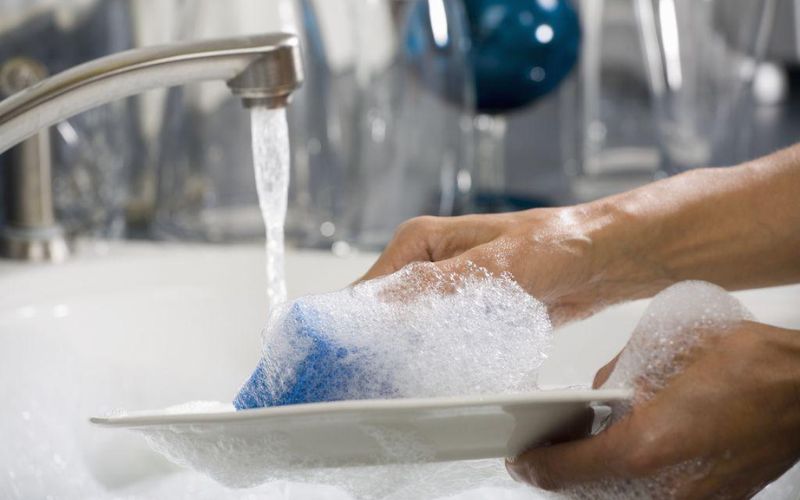
Using a dirty sponge
3 Washing dishes without gloves
Some people may find wearing gloves while washing dishes cumbersome and slippery. However, gloves can protect your hands from losing moisture and prevent dryness caused by prolonged contact with water.
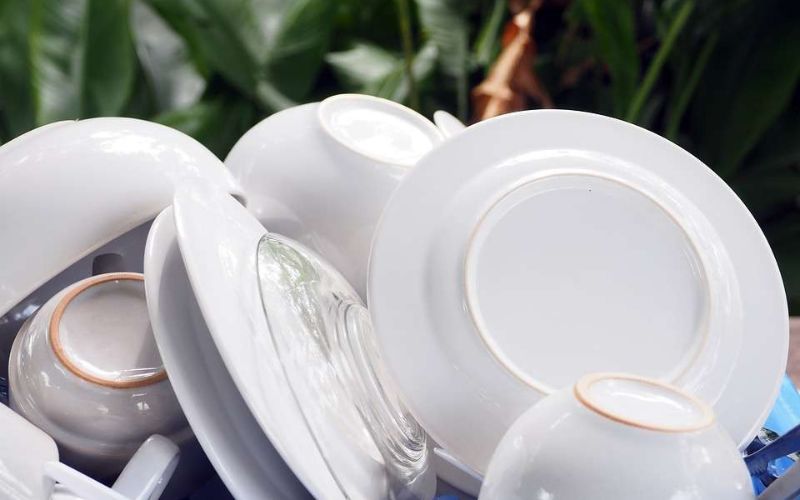
Washing dishes without gloves
4 Not soaking before washing
To make the cleaning process easier for items with stubborn stains, it is recommended to soak them before washing. For tough and greasy stains, overnight soaking may be necessary.
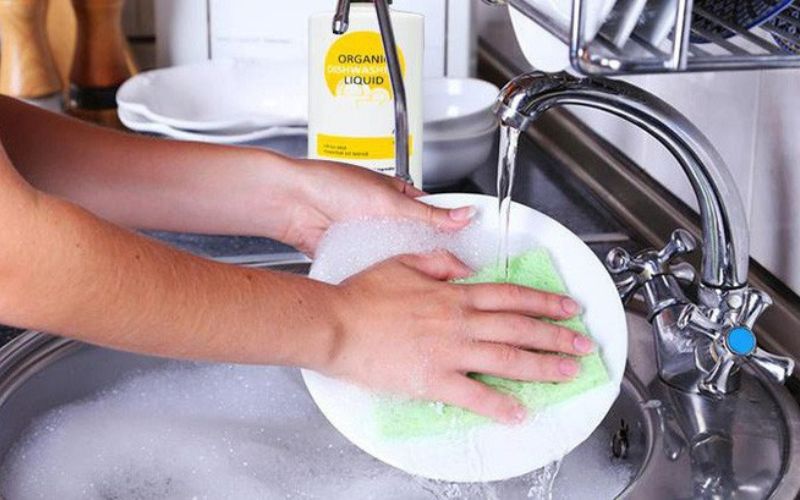
Not soaking before washing
5 Soaking items that should not be soaked
Some items should not be soaked as it may cause damage. For example, cast iron and wood should be quickly washed instead of soaked. It is important to be aware of which items can be soaked and which ones should not.
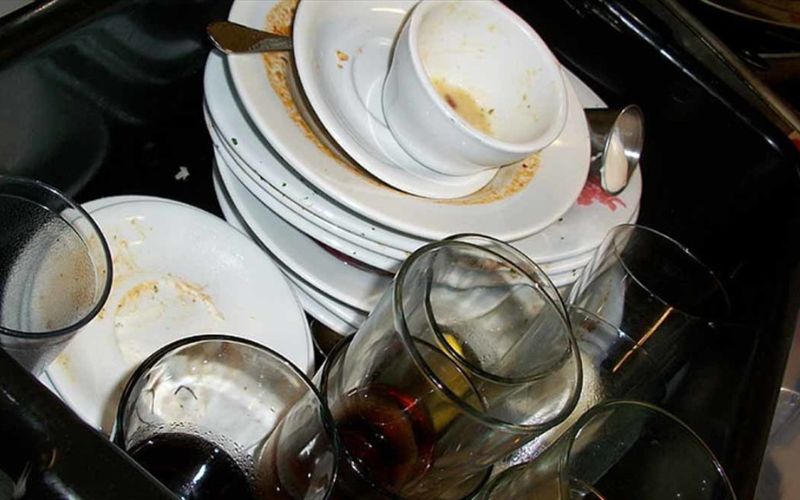
Soaking items that should not be soaked
6 Using too much soap
Using an excessive amount of soap can make the dishes slippery and harder to clean. It is recommended to use a sufficient amount of soap for effective cleaning.
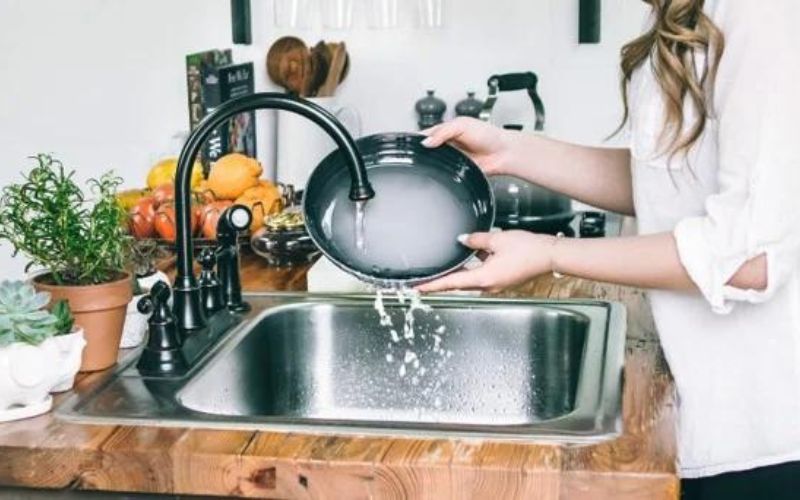
Using too much soap
7 Putting hand into the sink
Avoid putting your hand into the sink when there is a lot of waste remaining after washing dishes to prevent hand injuries. It is recommended to use gloves and handle carefully to avoid any accidents.

Putting hand into the sink
8 Storing wet dishes
Storing wet dishes can create an environment for mold to develop, posing a health risk to your family. It is important to ensure that dishes are dry before storing them by using a cloth or a drying rack.
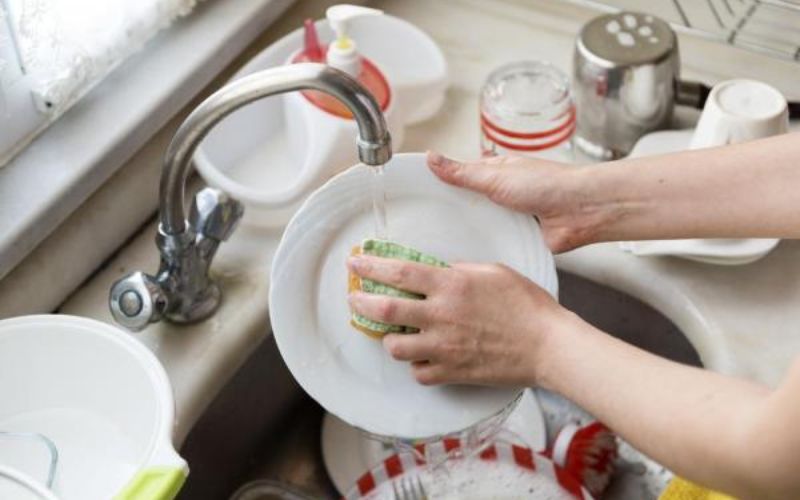
Storing wet dishes
The above article highlights the common mistakes people make while washing dishes and provides helpful tips to avoid them. For more useful knowledge, make sure to follow us!
Buy dishwashing liquid from us:





